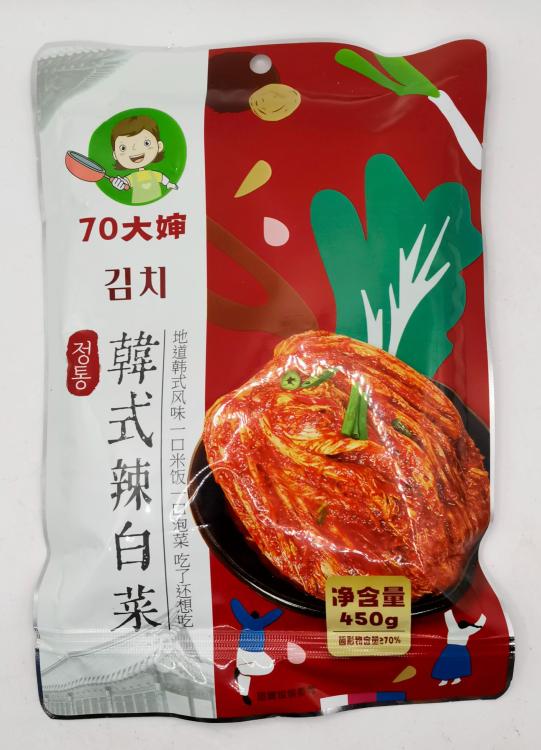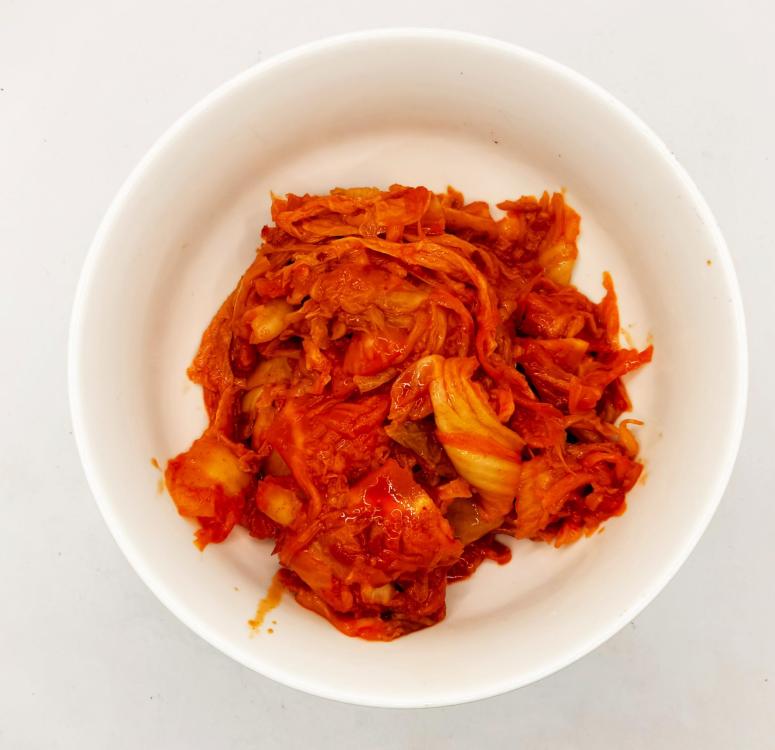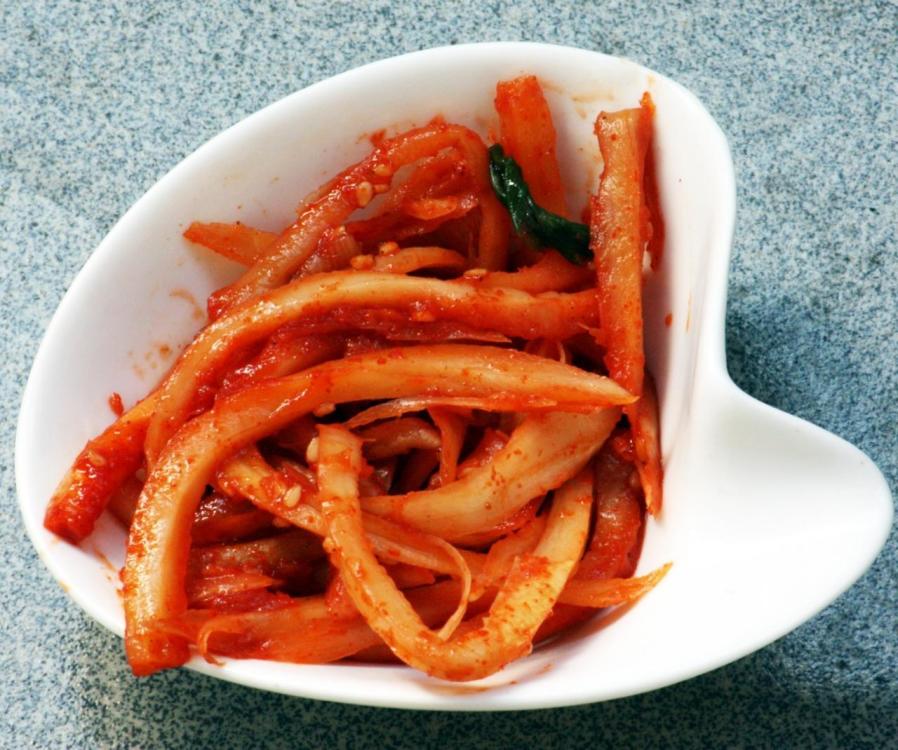I’m guessing everyone here knows 김치 even if they don’t read Korean. It is Kimchi in English although the standard Korean transliteration is gimchi (still pronounced with an initial k).
You may be wondering what it’s doing here in a Chinese pickle topic and there's the rub as Hamlet said although he never ate the stuff.
China and Korea have been arguing about this for a long time. China has stated that they essentially invented it but call it 泡菜 (pào cài). Korea deny this while recognising that pao cai is Chinese. They insist that there are significant differences between the two products; differences which China even acknowledges although claiming it doesn’t change the origin. Since 2012, China has banned the import of Korean kimchi on the grounds that it contains more lactic acid bacteria than permitted under China’s food laws. In 2013, announced 辛奇 (xīn qí) to be a new translation for China to use – a move that China has, sensibly in my view, totally ignored. Countries do not get to decided another’s language vocabulary
At the same time, however the rising demand kimchi in Korea has lead to shortages there and these are made up by importing kimchi from elsewhere, especially China!
China, in the meantime, continues to make and sell 韩式辣白菜 (hán shì là bái cài), ‘Korean style spicy pickled napa cabbage) within China and here it is.
Here is a real Korean kimchi imported before the 2012 ban. It is made from 桔梗本 (jié gěng běn), Korean: 도라지 (doraji). Long gone.
By the way (1), most kimchi contains fish products (mainly fish sauce) so is not vegetarian.
By the way (2), ethnic Korean are officially considered one of China’s ethnic minorities and have a large presence in Yanbian Korean Autonomous Prefecture in Jilin Province, bordering North Korea.






